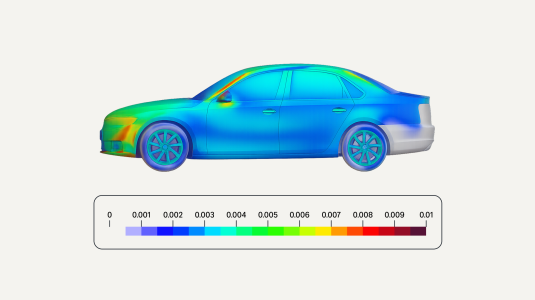Customer-obsessed science


Research areas
-
September 26, 2025To transform scientific domains, foundation models will require physical-constraint satisfaction, uncertainty quantification, and specialized forecasting techniques that overcome data scarcity while maintaining scientific rigor.
-
Featured news
-
IEEE BigData 20232023Hierarchies are common structures used to organize data, such as e-commerce hierarchies associated with product data. With these product hierarchies, we aim to learn hierarchy-aware product text embeddings to improve fine-tuning performance on a variety of downstream e-commerce tasks. Existing methods leverage hierarchies by either aligning the text embeddings to separate hierarchical embeddings or by aligning
-
WACV 2024 Workshop on Image/Video/Audio Quality in Computer Vision and Generative AI2023Recent works have shown great success in synchronizing lip-movements in a given video with a dubbed audio stream. However, comparison and efficacy of the synchronization capabilities of these methods is still weakly substantiated due to the lack of a generalized and visually-grounded evaluation method. This work proposes a simple and grounded algorithm – PhoVis, that can measure synchronization and the
-
Applied Physics Letters2023Robust, low-loss photonic packaging of on-chip nanophotonic circuits is a key enabling technology for the deployment of integrated photon- ics in a variety of classical and quantum technologies including optical communications and quantum communications, sensing, and trans- duction. To date, no process has been established that enables permanent, broadband, and cryogenically compatible coupling with sub-dB
-
NeurIPS 2023 Workshop on Efficient Natural Language and Speech Processing (ENLSP)2023This paper proposes a framework leveraging small samples from different Automatic Speech Recognition (ASR) data sources to predict model performance and facilitate ASR data selection decisions. By utilizing data distribution distance and a mapping technique inspired by neural scaling laws, our framework estimates the model performance for various data mixtures within the disclosed range and extrapolates
-
NeurIPS 2023 Workshop on Deep Generative Models for Health2023Writing radiology reports from medical images requires a high level of domain expertise. It is time-consuming even for trained radiologists and can be error-prone for inexperienced radiologists. It would be appealing to automate this task by leveraging generative AI, which has shown drastic progress in vision and language understanding. In particular, Large Language Models (LLM) have demonstrated impressive
Collaborations
View allWhether you're a faculty member or student, there are number of ways you can engage with Amazon.
View all














































